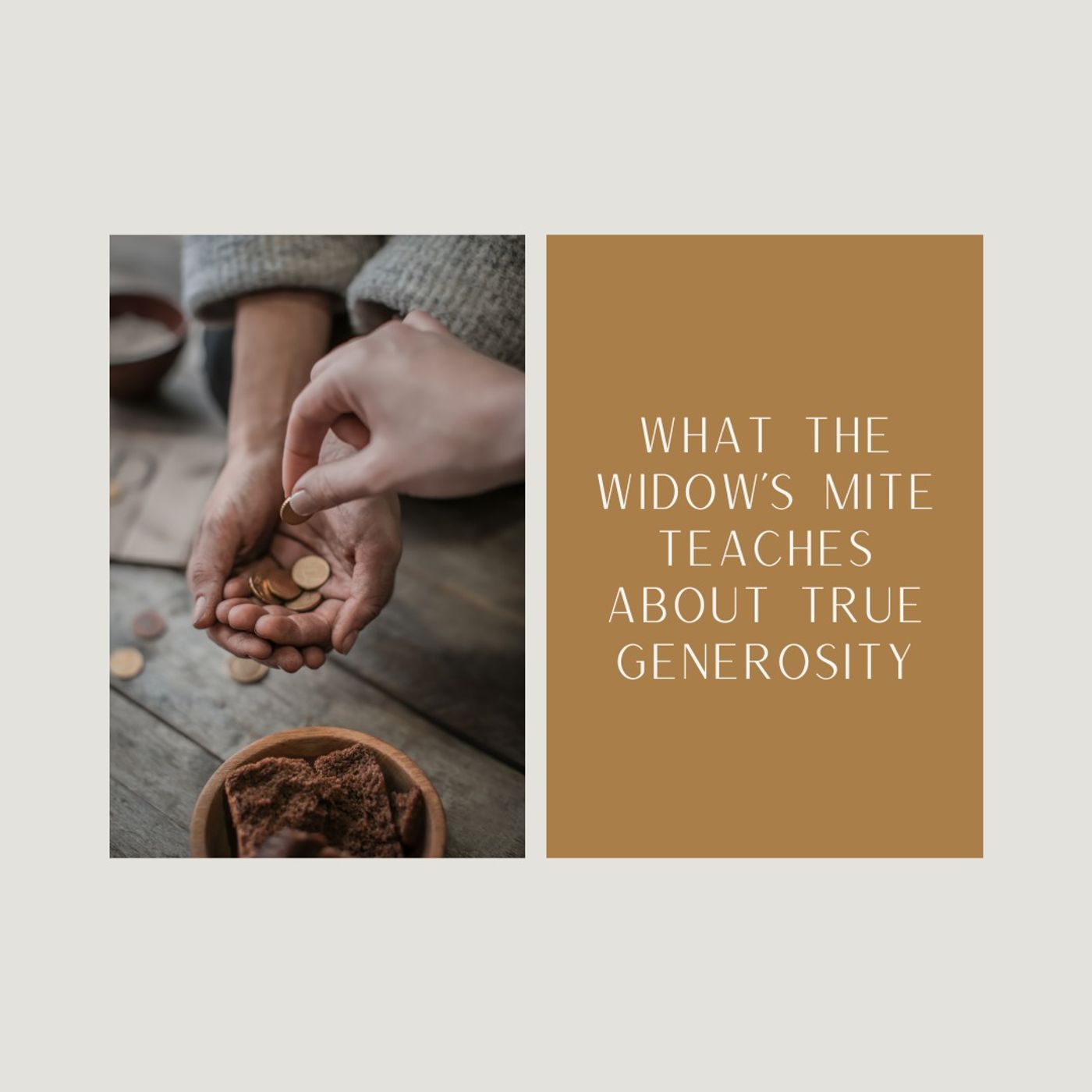What the Widow’s Mite Teaches About True Generosity
Faith & Finance with Rob West
What does true generosity look like? Is it measured by the size of the gift, or is it something deeper? In Luke 21:1–4, Jesus praises a widow who gave only two small coins. At first glance, her offering seems insignificant compared to the wealthy donors around her. Yet, in Jesus’ eyes, her gift was greater than them all. Why? Because God doesn’t measure generosity by the amount—it’s the heart behind it that matters.

Show Notes
What does true generosity look like? Is it measured by the size of the gift, or is it something deeper?
In Luke 21:1–4, Jesus praises a widow who gave only two small coins. At first glance, her offering seems insignificant compared to the wealthy donors around her. Yet, in Jesus’ eyes, her gift was greater than them all. Why? Because God doesn’t measure generosity by the amount—it’s the heart behind it that matters.
The Scene at the Temple
Picture the temple courts: the wealthy making large, noticeable contributions, drawing admiration for their gifts. Then comes a poor widow. No fanfare. No applause. Just two copper coins—economically worthless. Yet Jesus declares that she has given more than anyone else.
The difference? The wealthy gave from their abundance, gifts that cost them little. The widow gave out of her poverty—all she had to live on. Her gift was not just generous; it was sacrificial, risky, and rooted in trust.
This theme echoes throughout Scripture. In 1 Samuel 16:7, the Lord tells Samuel, “Man looks at the outward appearance, but the Lord looks at the heart.” Paul also affirms this in 2 Corinthians 8:12: “If the willingness is there, the gift is acceptable according to what one has, not according to what one does not have.”
God doesn’t call us to give what we don’t have. He calls us to give cheerfully, faithfully, and with hearts surrendered to Him.
God Wants Your Heart
The widow’s gift also points us to the gospel itself. In 2 Corinthians 8:9 we read, “Though He was rich, yet for your sake He became poor, so that you through His poverty might become rich.” Jesus gave everything for us—holding nothing back. When we give sacrificially, we reflect His love and generosity.Maybe you’ve felt your giving is too small to matter. But Scripture shows otherwise. In John 6, a boy offered five loaves and two fish—and Jesus fed thousands. The issue isn’t what you have, but what God can do with it.
Generosity in God’s Kingdom isn’t about status or size. It’s about surrender. A gift given in faith is never small. Whether two coins or two million dollars, the real question is: Am I giving out of abundance or out of trust?
You Might Also Like

October 2, 2025
Challenging Your Property Assessment
When your home appreciates in value, very often there’s a corresponding increase in your property taxes. The good news i...

October 1, 2025
Retirement Lessons From Those Who Learned the Hard Way
Every day, “thousands of Americans retire…short on cash, friendships, and plans.” Today, Rob West offers some advice and...

October 1, 2025
5 Things Women Should Expect from Their Financial Advisor with Sharon Epps
Women control more wealth than ever—so how do you find an advisor who listens, explains clearly, and shares your values?...